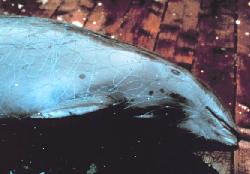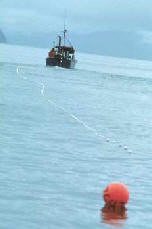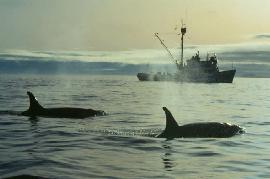|
The global response network will provide
scientific expertise to regions of the world
where cetaceans are in crisis to help reduce
bycatch. It will also play an advisory role
to fisheries and governments, provide
training and promote research and outreach.
A new website launched Tuesday,
http://www.cetaceanbycatch.org/,
will serve as a virtual resource center for
scientists to collaborate and share their
expertise with each other and with
governments and fishermen that request assistance.
"In releasing this call to action, we are urging governments worldwide to address this issue as part of their fisheries management," said Andy Rosenberg, co-chair of the Cetacean Bycatch Action Network and dean of the College of Life Sciences and Agriculture at the University of New Hampshire.
"The United States has made some progress in mitigating bycatch, but we need to show more leadership by helping solve this problem worldwide and continuing to improve our own track record," Rosenberg added.
Whales and dolphins can become entangled in commonly used
fishing gear like gillnets, tangle nets, trammel nets, trawl nets
and long lines. Solutions to the problem of entanglement vary
by region and species involved, but can include adding gillnet
floats that break away when hit by a whale, acoustic "pingers"
that warn marine mammals away from nets and buoy lines that
are less likely to snare whales and dolphins.
|


